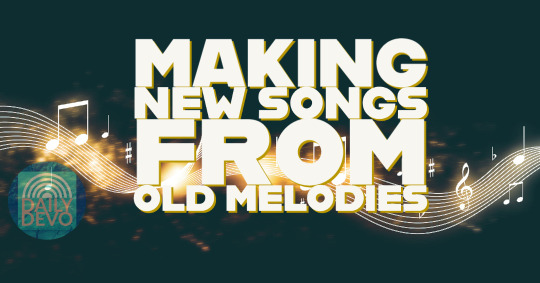#was reading today and thought this passage was hauntingly beautiful
Text
Remember your Creator in the days of your youth, before the days of trouble come and the years approach when youwill say,
"I find no pleasure in them".
before the sun and the light and the moon and the stars grow dark, and the clouds return after the rain; when the keepers of the house tremble, and the strong men stoop, when the grinders cease because they are few, and those looking through the windows grow dim; when the doors to the street are closed and the sound of grinding fades; when people rise up at the sound of birds, but all their songs grow faint; when people are afraid of heights and of dangers in the streets; when the almond tree blossoms and the grasshopper drags itself along and desire no longer is stirred.
Then people go to their eternal home and mourners go about the streets.
Remember him - before the silver cord is severed, and the golden bowl is broken; before the pitcher is shattered at the spring, and the wheel broken at the well and the dust returns to the ground it came from, and the spirit returns to God who gave it.
Ecclesiastes 12
0 notes
Text
Making New Songs From Old Melodies

I feel I've done an excellent job of giving my three boys a reasonably good musical education.
I introduced them to what might be considered "classic rock" these days at an early age. They've accompanied me to concerts to see bands like Styx, The Who, Joan Jett, Kiss, Def Leppard, the Smashing Pumpkins, the Black Keys, and many more.
Not too long ago, I was driving back from San Antonio with my two youngest boys, and they asked to play some of their current favorite music for me.
Most of it was a mixture of Soul, R&B, and hip-hop, which isn't my forte, but I willingly listened because they wanted to share. It wasn't lost on me that my boys were educating me, which was a rite of passage for us both.
Interestingly, most of the music they were sharing had elements, notes, shifts, and movements that were reminiscent of songs from the 1970s. I heard echoes of Sam Cook, Marvin Gaye, the Funkadelics, and the like.
But it was different. It was its own thing.
And even though it wasn't the kind of music I typically listen to, I resonated with it because it took inspiration from the past masters to create something new that spoke to emerging generations.
I thought about all of this today as I pondered the deep divisions in our current culture over all sorts of issues.
Some within our society long to return to some imagined past that they believe was more straightforward, more certain, and when their privileged position wasn't being threatened by new ideas, cultural shifts, and people who were different from them.
The problem is that their idealized past never really existed.
There were people in that idealized past who were marginalized, discriminated against, left behind, forgotten, or straight-up abused. To them, the idea of returning to that kind of past fills them with absolute dread.
I read an interesting quote from Cameron Trimble the other day that speaks to this:
We must resist looking to the frameworks of the past to lead us into the future. Doing so is a way to pretend to control, to tighten our grip and reduce our cultural aerodynamic flexibility.
When we look to the "frameworks of the past," we risk losing our ability to move forward. But I think we can transcend those frameworks, even as we include some of the "musical notes" from the past that make sense to carry with us.
In fact, Trimble goes on to say:
Instead, perhaps we turn to ways of wisdom that cultivate intuition, patience, and ingenuity. We embrace the ways of a Mystic Wayfinder, one who purposefully gets lost in order to chart new ways forward.
I love Trimble's description of God as the "Mystic Wayfinder," by the way. I intend on borrowing that. Sometimes we need to get lost to find ourselves. Jesus taught this to his followers.
I also resonate with how Trimble speaks here of the "ways of wisdom" as well. These are the musical notes from the past that I said earlier that we can bring forward to create something new.
What is true for our society is also true for us as individuals.
We can't go back to the past, but we can transcend what needs to be left behind and bring forward what needs to be included---the notes, melodies, and phrases that are timeless and beautiful.
And we can make new music. There will be echoes of what we've included from our past in the new things, but they will be entirely new if that makes sense.
This is how it is meant to be. The Mystic Wayfinder longs for us to embrace lostness, letting go of what was and finding new, hauntingly familiar songs that are entirely different from what we used to sing.
May it be so, and may the grace and peace of our Lord Jesus Christ be with us all now and forever. Amen.
0 notes
Text
Prayer Is A River

Once in a while I've run across a piece of Scripture, a prayer or a poem that just captures where I am in a particular moment... and when this happens I often sit with it for days, thinking about why it spoke to me.
Here's a poem that I recently read by the Lebanese poet Said Akl that I've been sitting with for a while:
lord
i refuse
to engage prayer as a weapon
i wish it to be like a river
between two shores
for i seek neither punishment nor grace
but new skin
that can bear this world
This prayer/poem spoke to me on so many levels.
As read this poem, I had a vision of prayer that was so beautiful and true that it made my heart ache. I had never thought of prayer as a river before, but it made perfect sense.
But when you imagine prayer as a river it is easy to see how it truly is the flow between the "now" and the "not yet," and a moving demarcation line between heaven and earth.
The flow exists whether we acknowledge it or not, and we can enter into it if we wish... every time we choose to pray in whatever way we pray.
But for what purpose? Why enter into the river at all?
The poet offers up an idea at the end of this prayer that is hauntingly lovely and so incredibly profound. He says he prays so that he can have "new skin that can bear this world."
As I read that passage, I was reminded of the story of Na'aman from the book of 2 Kings chapter 5 in the Hebrew Scriptures. Na'aman was cured of a skin disease after trusting the prophet Elisha and dipping himself seven times in the Jordan river.
The Scripture reports this about Na'aman's new skin:
So he went down and dipped himself in the Jordan seven times, as the man of God had told him, and his flesh was restored and became clean like that of a young boy.
I'd like to think that Akl was thinking of this story when he wrote this--picturing Na'aman submitting to the river, watching the diseased skin change color as he rose and fell under the surface of prayer... five, six, seven... [new!].
May your prayers today be given new imagination, and new purpose and may you discover new skin that is formed over the bare bones of your old longings.
And may the grace and peace of our Lord Jesus Christ be with you now and always. Amen.
0 notes